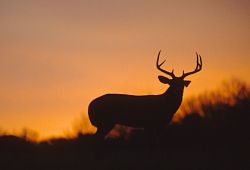

Scientists have warned that there is an alarming difference between the human-driven season's shifts and animals' behavioural changes.
Climate disruption is reaching speeds that are outstripping many animals capacity to adapt, warning of a growing threat to even common species, such as sparrows, magpies and deer. Previous academic work has shown species have responded to warming temperatures by earlier by timing their biological processes a lot earlier - laying their eggs, budding plants or the flying of insects - and this new study is examining how effective it is in terms of reproduction and survival. Based on 10,090 abstracts and data from 71 published studies, it has found a clear lag in the majority of species studied. None could be considered safe, the paper has noted: "The probability that none of the study species is at risk is virtually zero."
The authors have said hundreds of thousands of species were not covered by their study, which as a result led to it being biased towards birds in the northern hemisphere. The problems of adaptation to climate change are even more likely to be greater for other animals deemed at risk of extinction. On top of the damage caused to biodiversity from climate change, this rapid pace that species struggle to adapt to is also having a great impact on them.
This mirrors the similar image outlined by the UK parliament, in which senior conservation figures warned that the nation's natural infrastructure - something being responsible for fresh clean water, air, carbon sequestration and human wellbeing - is being undermined by the climate crisis, pollution, urban sprawl and budget cuts. Ideas for a "nature recovery network" could rebuild woodlands and peatlands, and working with farmers has the potential to protect species and restore soil quality which has the potential to draw away carbon dioxide from the atmosphere.